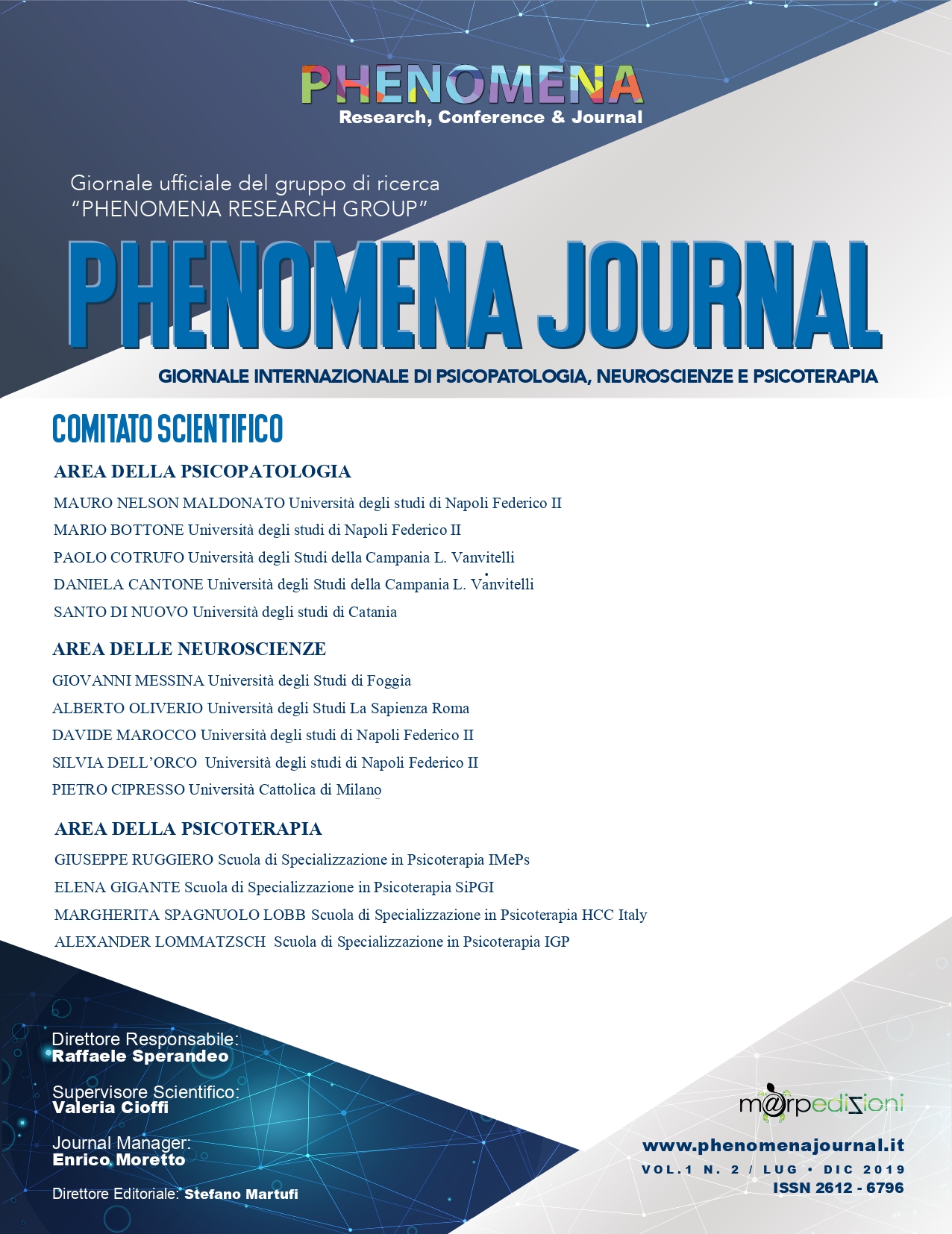Published 2019-11-14
Keywords
- Cognitive Behaviour Therapy, auditory hallucinations, psychosis, mindfulness, normalization
How to Cite
Abstract
When we talk about serious patients, we certainly refer to those patients who present a symptomatology of schizophrenic type. Often psychotherapy in these cases is considered marginal, aimed at catching the signs of a worsening or helping the patient and his family to live with the disorder. But the evidence in the literature tells us that patients often refuse or stop drug treatment. Is it conceivable in these cases an alternative treatment to pharmacological therapy that allows the engagement of the patient and which allows the containment of positive symptoms? The present work has a dual purpose: on the one hand to collect and report on the efficacy of non-pharmacological treatments, on the other to question the nature of psychotherapeutic interventions that are currently effective in the treatment of positive symptoms and therefore hypothetically transposable in cases of refusal or interruption of the drug. Specifically, this work focuses on the psychotherapeutic treatment of auditory hallucinations. The data collected highlight the possibility of not merely pharmacological interventions and underline that the therapeutic approaches of a psychological nature for the treatment of hallucinations have evolved over time, passing from interventions focused on behaviour and on the management of the "problem" to interventions that include application of approaches based on acceptance and mindfulness.

